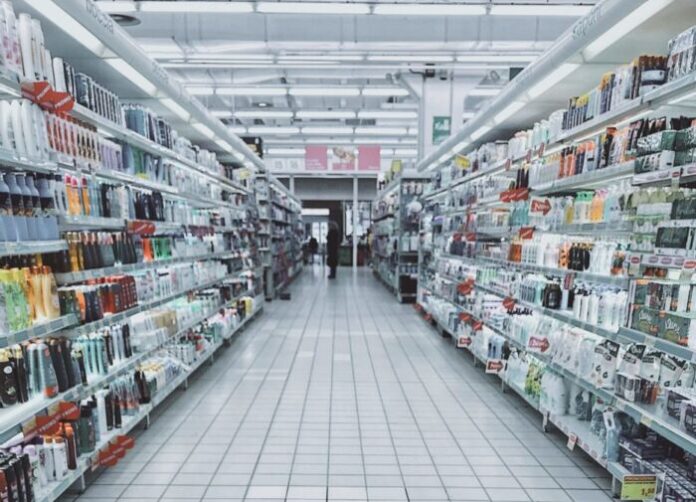
A typical supermarket is filled with plastic, from aisles of drinks in plastic bottles to bags of prewashed greens and the liners hidden in cereal boxes. (Some go even further, such as a grocery store in Hong Kong known for selling individually wrapped strawberries.) But an increasing number of stores are trying to find ways to get rid of some of that packaging.
A new Greenpeace report, The Smart Supermarket, walks through some of the solutions that already exist. “In talking with some companies, it’s just such a big problem to tackle: How do you completely overhaul all the packaging in your store?” says Kate Melges, a plastics campaigner at Greenpeace and one of the authors of the report. “I wanted to show people that the solutions that we need are already here. Granted, they’re at various scales, but imagine if we scale them up, and imagine what it could look like if we were to transform the way that we grocery shop in our supermarkets. That is not some far-off world where packaging-free and plastic-free systems exist. It’s here. Now it’s just a matter of adapting it to a larger scale.”
The solutions highlighted in the report include:
Reusable containers for prepared food – In the U.K. alone, takeout lunches generate an estimated 11 billion pieces of packaging waste each year. ReCircle, a program in Switzerland, sells customers a reusable box to use at in-store salad bars, which can be returned to get a deposit back. Revolv, an Asian startup, uses RFID tags to track reusable containers. Metro, a major grocery chain in Canada, recently began allowing customers to bring their own containers to buy meat, seafood, and other prepared food.
Expanding bulk bins – While it’s common for supermarkets to sell at least a few items in bulk bins, the number of options is expanding, from rice and pasta to olive oil and laundry detergent. Unpackaged, a zero-waste store in London, developed a scale that makes it easy for consumers to quickly subtract the weight of a package that they bring from home. Waitrose, a large U.K. chain, recently tested the same technology in a plastic-free trial that included a large number of products, including frozen fruit and beer. Unilever has tested systems such as the “Refillery,” a refilling station for shampoo and conditioner at a mall in the Philippines. In Chile (and coming soon to the U.S.) a company called Algramo makes it easy to refill on bulk items, and it even has a mobile refill cart that will come to your home.
Reducing upstream waste – MIWA (“minimum waste”), a Czech startup, makes a system that allows food producers to deliver their products in reusable dispensers. Customers shop with their own containers, and when a large dispenser is empty, it can be returned, cleaned, and refilled.
Food in the nude – In New Zealand, where produce was sold wrapped in plastic until recently, retailers have begun switching to plastic-free displays in a campaign they call “food in the nude.” As in some supermarkets in the U.S., stores now “mist” fruit and vegetables with water to help them stay fresh longer without plastic.
Lasered labels on fruit – Tiny plastic labels on apples and bananas might not account for much of the total plastic in a store, but they can cause problems when fruit and vegetables end up in compost, and they are replaceable. Laser Food, a company in Spain, uses lasers to etch a tiny code directly on produce.
Rental shopping bags – While many cities and countries have phased out plastic grocery bags, many stores still sell reusable bags for people who forget to bring their own (and reusable bags can have a surprisingly large footprint). Some stores, such as Carrefour and A-Mart in Taipei, are beginning to offer rentals of reusable shopping bags; when customers return them, they get back the deposit they paid.
Reusable packaging for online orders – Wally Shop, a zero-waste delivery service in Brooklyn, delivers local produce and bulk goods by bike in reusable containers. Loop, a service now being piloted by major manufacturers, sells common items in reusable packaging that can be cleaned and returned for refilling.
For these solutions to scale up, food companies and retailers “need to make a strong commitment internally to moving away from plastic,” says Melges. While many companies have focused efforts on recycling in the past, now, she says, they need to put their investment into solutions that move away from a throwaway, single-use packaging lifestyle. “The more that these types of systems are available and that they’re around and people are seeing them and have access to them, the more that the public will be bought into it,” she says. “The less foreign it is to folks, the more easily it’ll be adopted.”






































